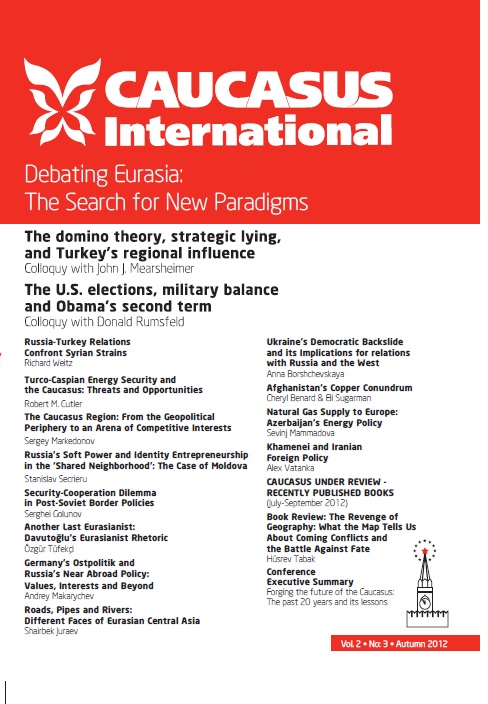Russia’s Soft Power and Identity Entrepreneurship in the ‘Shared Neighborhood’: The Case of Moldova
Russia has recently demonstrated a greater awareness of its ‘soft power’ capacities, on both a discursive and a practical level. Thus, this article will first look at how a ‘soft power’ discourse fits into Russia’s realist paradigm, which provides a matrix for interpreting the international environment and offers guidelines for how to achieve its national objectives. Secondly, it will explore the development of Russia’s ‘soft power’ resources and the general framework of their deployment in the context of identity entrepreneurship in the ‘shared neighborhood’. The final section of the article will focus on Russia’s ‘soft power’ usage in Moldova, which has recently been striving to get closer to the European Union. This paper will reveal how Russia employs cultural influence and human resources to deepen identity division in Moldova and to stonewall the country’s European integration.
Latest news
- 03/17/2020 Call for Submission: “Non-Alignment Movement and Its Perspective in International Affairs”. Deadline: 1 July 2020 2626 views
Popular articles
- 02/24/2020 The Role of Irredentism in Russia’s Foreign Policy 2536 views
- 02/24/2020 Construction of sub-national identity vis-à-vis parent state: Gagauz case in Moldova 2218 views
- 02/24/2020 The Conflict in Ukraine - The Geopolitics of Separatism and Divergent Identities (Commentary) 2072 views
- 02/24/2020 The Role of the Soviet Past in Contemporary Georgia 2044 views





